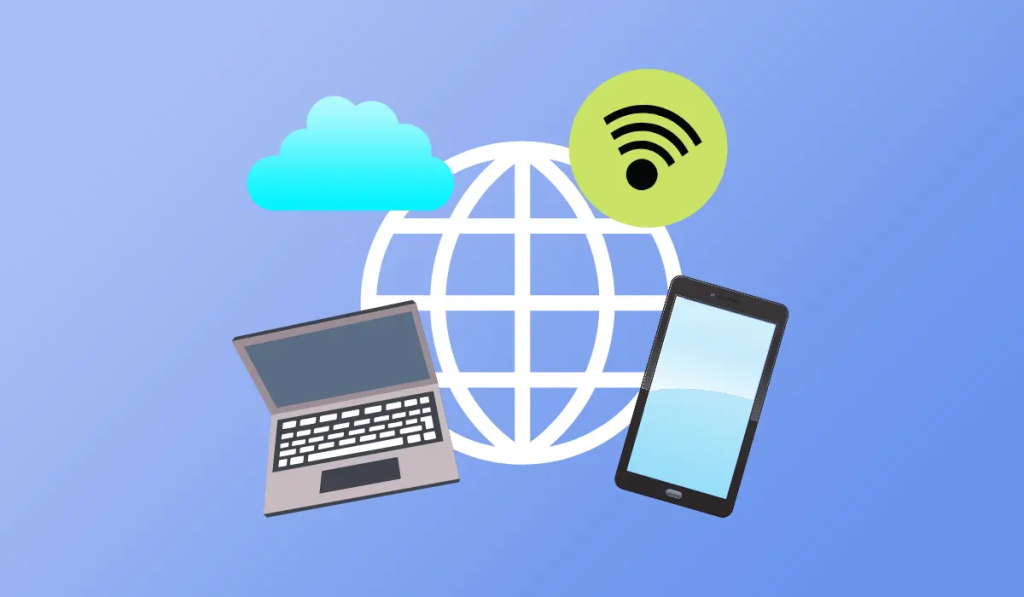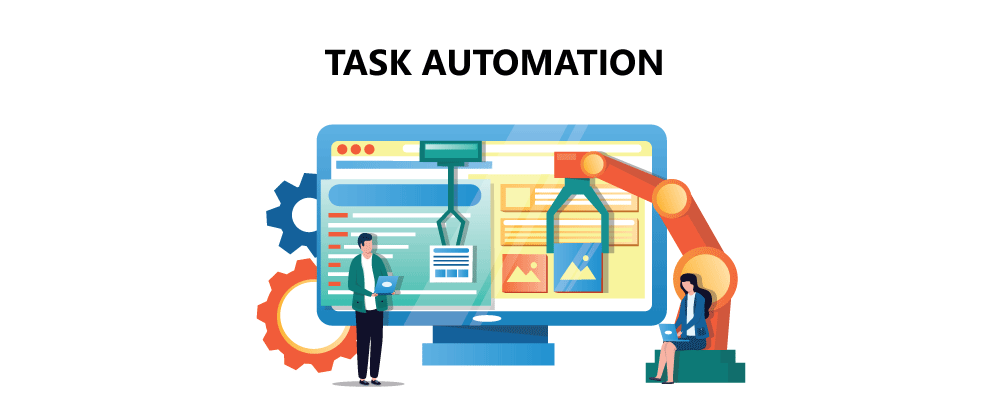In the modern legal landscape, efficient communication is crucial for lawyers to effectively manage their workload and provide excellent client service. This is where Voice over IP (VoIP) comes in.
VoIP phone systems are increasingly being used in the legal industry to streamline operations and enhance productivity. By leveraging VoIP technology, lawyers can save valuable time and money while improving their overall efficiency.
- VoIP phone systems offer industry-specific features and functionality tailored to the needs of law firms.
- By implementing VoIP, lawyers can enjoy flexible communication options and access to advanced call management tools.
- Integration with case management software and other legal tech tools further enhances efficiency and collaboration.
- VoIP ensures confidentiality and security, safeguarding sensitive client information.
- Choosing the right VoIP phone system requires careful consideration of specific needs, desired features, and non-negotiable requirements.
Understanding VoIP for Lawyers

VoIP, also known as Voice over IP, is a technology that enables lawyers to make and receive phone calls over the Internet, instead of using traditional phone lines. This innovative communication solution has gained popularity in the legal industry due to its numerous advantages and features tailored specifically for legal practices.
With VoIP technology, lawyers can enjoy flexible access to communication from various devices, such as desktop computers, laptops, smartphones, or tablets. This allows legal professionals to stay connected and accessible even when they are out of the office. Whether in courtrooms, client meetings, or working remotely, lawyers can have seamless communication with their clients, colleagues, and staff members.
One notable feature of VoIP for lawyers is its ability to record and transcribe conversations. This functionality is particularly useful for legal professionals who need accurate and detailed documentation of client calls, interviews, or negotiations. With VoIP phone systems, lawyers can effortlessly store and access call recordings, ensuring that no important information is missed or forgotten.
To enhance efficiency and streamline legal operations, VoIP phone systems can integrate with popular case management software. This integration allows lawyers to manage their client matters more effectively by automatically linking incoming and outgoing calls to corresponding case files. This seamless integration eliminates time-consuming manual entries and ensures accurate record-keeping for future reference or billing purposes.
| Advantages of VoIP for Lawyers |
|---|
| Flexible access to communication from various devices |
| Ability to record and transcribe conversations |
| Integration with case management software |
| Efficient call management and routing |
| Enhanced security and confidentiality measures |
VoIP for lawyers offers a range of benefits, including flexible access to communication, efficient call management, and advanced integration capabilities. By leveraging this technology, lawyers can streamline their operations, save time, and ultimately provide better service to their clients.
Key Features of VoIP Phone Systems for Lawyers
VoIP phone systems designed for lawyers come equipped with a range of features tailored to streamline communication and enhance productivity in legal practices. These systems offer advanced functionalities that cater specifically to the unique needs of the legal industry.
One key feature of VoIP phone systems for lawyers is the integration with case management software. This allows for seamless synchronization between phone calls and case records, enabling attorneys to retrieve relevant information quickly and accurately. It eliminates the need for manual data entry and ensures that important details are never missed.
Another important feature is advanced call recording. VoIP phone systems allow lawyers to easily record and transcribe conversations, ensuring that no crucial details are lost. These recordings can be securely stored and accessed whenever needed, providing a valuable resource for case preparation and review.
The security and confidentiality of client information is paramount in the legal industry. VoIP phone systems address this concern by offering enterprise-grade security measures. These systems employ industry-standard encryption protocols to protect sensitive data and guard against unauthorized access. By using a VoIP phone system, lawyers can have peace of mind knowing that their client’s information is secure.
| Key Features of VoIP Phone Systems for Lawyers: |
|---|
| Integration with case management software |
| Advanced call recording and transcription |
| Enterprise-grade security measures |
VoIP phone systems designed for lawyers provide a comprehensive solution for efficient and secure communication. With their integration capabilities, call recording features, and robust security measures, they empower legal professionals to optimize their workflow and deliver exceptional client service.
The Benefits of VoIP for Lawyers

Implementing VoIP in a legal practice offers a multitude of benefits, empowering lawyers to optimize their operations and deliver exceptional service to their clients. VoIP, or Voice over Internet Protocol, revolutionizes how lawyers communicate and collaborate, providing a flexible and efficient solution that traditional phone systems cannot match.
One of the key advantages of VoIP for lawyers is the ability to have access to communication from anywhere, at any time. Whether working from the office, client meetings, or even remotely, lawyers can make and receive calls, access voicemails, and participate in conference calls using their mobile devices or laptops. This flexibility ensures that lawyers can stay connected and provide responsive service to their clients, no matter where they are.
Furthermore, VoIP phone systems for law offices offer advanced features that enhance productivity and efficiency. These systems can record and transcribe conversations, making it easier to refer back to important details or create accurate case notes. By integrating with case management software, VoIP phone systems streamline administrative tasks, such as automatically logging call details and associating them with client records. This automation reduces the workload for lawyers, allowing them to focus on providing legal expertise and delivering exceptional service.
Security and confidentiality are of paramount concern to lawyers, and VoIP phone systems address these issues effectively. With enterprise-grade security measures in place, such as encrypted calls and data transmission, lawyers can have peace of mind knowing that their communications are secure. Additionally, VoIP phone systems have features like call blocking and caller ID to prevent unwanted calls and maintain client confidentiality.
Selecting the Right VoIP Phone System for Law Firms
Selecting the right VoIP phone system is crucial for law firms seeking to maximize the benefits of this technology and meet their unique operational needs. With a myriad of options available, it’s important to consider specific factors that are essential for legal professionals. When evaluating VoIP services for law firms, several key aspects should be taken into account.
Assessing Specific Needs
Law firms should start by identifying their specific communication requirements. Consider the size of the firm, the number of employees, and the anticipated call volume. Additionally, determine if there are any specific features or functionalities that are essential for your practice.
Desired Features
Make a list of the features and capabilities that you expect from a VoIP phone system. For law firms, certain features are particularly useful, such as call recording and logging, voicemail transcription, and mobile and desktop apps for flexibility. Also, consider if you need integration with other legal tech tools, such as case management software, to streamline workflows and improve efficiency.
Non-Negotiable Requirements
Law firms have unique requirements when it comes to security and confidentiality. Ensure that the VoIP provider you choose has robust measures in place to protect client data and sensitive information. Look for features such as encryption, multi-factor authentication, and secure data storage. Additionally, consider the reliability of the service and the level of customer support provided by the VoIP provider.
Comparing VoIP Providers
Once you have a clear understanding of your needs, desired features, and non-negotiable requirements, it’s time to compare VoIP providers. Look for reputable providers that have experience serving the legal industry, and consider factors such as pricing, contract terms, and scalability. Read reviews and testimonials from other law firms to gain insights into the quality of their services.
By carefully evaluating these factors and selecting the right VoIP phone system for your law firm, you can unlock the power of streamlined communication, increase productivity, and enhance client service.
Choose the Right VoIP Phone System for Your Law Firm
When selecting a VoIP phone system for your law firm, consider your specific requirements and preferences. Determine the size of your firm, the number of users, and the level of functionality needed. Additionally, assess the integrations available and ensure compatibility with your existing case management software and other legal tech tools.
By implementing the right VoIP phone system, legal professionals can benefit from improved communication, streamlined operations, and enhanced client service. These modern solutions empower lawyers to work efficiently and effectively, ultimately leading to increased productivity and success in the legal industry.
Legal Tech Tools for Lawyers

VoIP technology can be seamlessly integrated with a range of legal tech tools, enabling lawyers to optimize their workflows and achieve enhanced productivity. By combining VoIP with these tools, law firms can streamline communication, automate tasks, and improve collaboration, ultimately leading to more efficient and effective legal operations.
One essential tool for lawyers is case management software, which allows them to organize and track their cases, documents, and deadlines. Integrating VoIP with case management software enables attorneys to easily make and receive calls directly from their case files. This integration eliminates the need for manual note-taking and minimizes the risk of miscommunication or missed information during client calls.
Additionally, VoIP can be integrated with transcription software, making it easier for lawyers to transcribe and review important conversations. This saves valuable time and effort, as lawyers no longer need to manually transcribe lengthy recordings. By having transcriptions readily available, legal professionals can quickly access and review information, ensuring accuracy and efficiency in their work.
| Benefits of Integrating VoIP with Legal Tech Tools: |
|---|
| Improved communication efficiency |
| Automated task management |
| Enhanced collaboration and teamwork |
| Streamlined document management and tracking |
In conclusion, integrating VoIP with legal tech tools provides numerous advantages for lawyers and law firms. It enables them to optimize their workflows, improve productivity, and deliver better client service. By harnessing the power of VoIP technology and its seamless integration capabilities, legal professionals can enhance their communication, automate tasks, and stay organized, ultimately leading to more efficient and successful legal practices.
Ensuring Security and Confidentiality with VoIP
As lawyers rely heavily on maintaining the privacy and confidentiality of client communications, it’s crucial to implement robust security measures when utilizing VoIP technology. With the increasing risk of cyber threats and data breaches, it is essential for law firms to safeguard sensitive information and protect client confidentiality.
VoIP phone systems for lawyers offer advanced security features to mitigate potential risks. These systems employ encryption protocols to ensure that calls and messages are transmitted securely. By encrypting voice and data transmissions, VoIP technology provides an extra layer of protection, making it difficult for unauthorized parties to intercept or decipher sensitive information.
Additionally, many VoIP providers offer enterprise-grade security measures, such as firewalls, intrusion detection systems, and regular security updates. These measures help prevent unauthorized access and protect against potential vulnerabilities in the VoIP network. By implementing these security measures, law firms can significantly reduce the risk of data breaches and unauthorized access to confidential client information.
| Key Security Measures for VoIP Phone Systems |
|---|
| Encryption of voice and data transmissions |
| Firewalls and intrusion detection systems |
| Regular security updates and patches |
| Password protection and multi-factor authentication |
| Secure remote access for authorized users |
Implementing a VoIP phone system also enables law firms to have greater control over their communication channels. Features such as call recording and logging, voicemail transcriptions, and access controls allow firms to monitor and manage their communications effectively. This not only enhances security but also enables better compliance with regulatory requirements.
In conclusion, ensuring security and confidentiality is paramount when using VoIP technology in the legal industry. Law firms must implement robust security measures, such as encryption, firewalls, and regular updates, to protect client communications and sensitive information. By leveraging the advanced security features offered by VoIP phone systems for lawyers, firms can enhance their data protection measures, reduce the risk of unauthorized access, and maintain the trust and confidence of their clients.
The Efficiency and Productivity Benefits of VoIP for Lawyers
By implementing the right VoIP phone system, lawyers can significantly enhance the efficiency and productivity of their practices, leading to better client service and increased effectiveness. VoIP technology offers a range of features specifically designed for legal professionals, allowing for streamlined communication and automation of tasks.
One of the key advantages of VoIP for lawyers is the ability to record and transcribe conversations. This feature not only ensures accurate documentation but also simplifies the process of reviewing and referencing key information. With voicemail transcriptions and call logging, important details won’t be missed, helping legal professionals stay organized and on top of their workload.
Integration with case management software is another significant benefit of VoIP phone systems for lawyers. This allows for seamless coordination between communication and case-related tasks, improving overall efficiency. With the ability to link phone calls directly to specific cases, lawyers can easily track and manage client communication, ensuring that nothing falls through the cracks.
| Benefits of VoIP for Lawyers |
|---|
| Streamlined communication |
| Automation of tasks |
| Integration with case management software |
| Enhanced client service |
| Increased productivity |
Conclusion
Embracing VoIP technology has become a game-changer for law firms, providing an opportunity to streamline operations, save valuable time and money, and revolutionize the way legal professionals communicate. VoIP phone systems offer industry-specific features such as case management software integration and enterprise-grade security measures, making them an ideal choice for law firms.
By implementing a VoIP phone system, lawyers can benefit from flexible access to communication, enabling them to stay connected wherever they are. They can also leverage advanced call recording and transcription capabilities, allowing them to easily document and refer back to important conversations.
Implementing the right VoIP phone system can greatly improve the efficiency and effectiveness of legal operations, leading to better client service and increased productivity. By embracing VoIP technology, law firms can stay ahead in an increasingly competitive landscape, while also reaping the benefits of streamlined communication and cost savings.
FAQ
Q: What is VoIP and how does it benefit lawyers?
A: VoIP, or Voice over Internet Protocol, is a technology that allows phone calls to be made over the internet instead of traditional telephone lines. For lawyers, VoIP offers numerous benefits such as flexible access to communication, the ability to record and transcribe conversations, workload reduction through automation, integration with case management software, and enhanced security.
Q: What features should law firms look for in a VoIP phone system?
A: Law firms should consider features such as case management software integration, call recording and logging, voicemail transcriptions, and integrations with legal tech tools. These features can greatly improve efficiency and effectiveness in legal operations.
Q: What are some popular VoIP phone system options for law firms?
A: Some popular options for legal phone systems include Vxt, Vonage, Zoom Phone, Microsoft Teams, and 8×8. These systems offer features such as mobile and desktop apps, advanced call recording, and integrations with legal tech tools.
Q: How can VoIP phone systems improve the efficiency of legal operations?
A: By implementing a VoIP phone system, law firms can streamline communication, reduce workload through automation, integrate with case management software, and ensure confidentiality and security. This leads to better client service and increased productivity.
Q: What should law firms consider when choosing a VoIP phone system?
A: Law firms should assess their specific needs, desired features, and non-negotiable requirements when selecting a VoIP phone system. It’s important to choose a system that can cater to the unique needs of the firm and align with their goals.



